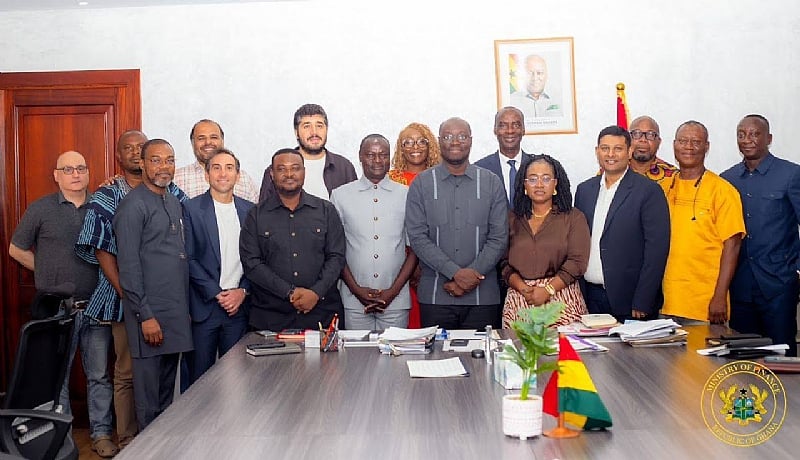The Ghanaian cedi has recently experienced a significant upswing in value, a development that Finance Minister Dr. Cassiel Ato Forson attributes to deliberate and sustainable economic management strategies implemented by the government. He assured stakeholders, including the Food and Beverage Association of Ghana (FABAG), that this positive trend is not a fleeting phenomenon but rather a product of meticulous planning and targeted interventions designed to bolster the cedi’s strength and stability. This resurgence, he argued, is evidenced by the improved interbank exchange rate, which has strengthened to GH¢13.29 against the US dollar, a marked improvement from the GH¢16 plus rates witnessed earlier in the year. Dr. Forson emphasized the government’s commitment to maintaining this upward trajectory, promising sustained stability and further strengthening of the cedi.
Dr. Forson’s pronouncements underscore a broader economic strategy aimed at not only stabilizing the currency but also tackling inflation and creating job opportunities. He stressed that the cedi’s recent appreciation isn’t a short-term anomaly but a result of carefully crafted policies designed to achieve long-term economic stability. The Finance Minister called upon stakeholders to support these efforts to ensure that the positive impact of these economic measures is felt across all segments of Ghanaian society. He believes this collective effort will contribute to a stronger, more resilient economy that benefits all citizens. This renewed confidence in the cedi’s stability is crucial for businesses and individuals alike, fostering a more predictable and conducive environment for investment and economic activity.
This positive development coincides with Ghana’s successful negotiation of a staff-level agreement with the International Monetary Fund (IMF). This agreement paves the way for a disbursement of approximately $370 million, which will provide a significant boost to Ghana’s economic recovery efforts. This injection of funds is expected to further bolster the government’s capacity to implement its economic agenda, including measures aimed at strengthening the cedi, controlling inflation, and stimulating job creation. The IMF’s endorsement through this agreement signals international confidence in Ghana’s economic recovery strategy and its potential for sustainable growth.
The Minister’s assertion of sustained cedi stability holds significant implications for various sectors of the Ghanaian economy. For importers, a stable and stronger cedi translates to lower import costs, potentially leading to reduced prices for goods and services. This, in turn, can help alleviate inflationary pressures and increase the purchasing power of consumers. Exporters might face challenges as a stronger cedi could make Ghanaian exports less competitive in international markets; however, the overall stability provides a more predictable environment for businesses to plan and operate. The stability also fosters investor confidence, encouraging both domestic and foreign investment, which is crucial for driving economic growth and creating jobs.
The government’s focus on job creation alongside currency stabilization and inflation control signifies a comprehensive approach to economic recovery. By addressing these interconnected challenges simultaneously, the government aims to create a virtuous cycle of economic growth and prosperity. A stable currency provides a foundation for sustainable economic activity, while lower inflation protects the purchasing power of consumers, further stimulating demand and economic growth. Job creation, in turn, empowers individuals and families, contributing to increased consumption and overall economic expansion. This holistic approach, focusing on key economic indicators, is essential for ensuring broad-based and inclusive economic growth.
The success of this economic recovery strategy will depend on various factors, including the effective implementation of the IMF-supported program, consistent and transparent economic policies, and the continued collaboration between the government and key stakeholders, such as the FABAG. Maintaining fiscal discipline, improving revenue collection, and investing strategically in key sectors will be crucial for long-term economic sustainability. Furthermore, fostering a conducive business environment, promoting entrepreneurship, and investing in human capital will be essential for creating a vibrant and resilient economy that benefits all Ghanaians. The government’s commitment to sustained engagement and dialogue with stakeholders will be instrumental in ensuring that these economic policies are implemented effectively and achieve their intended outcomes.


